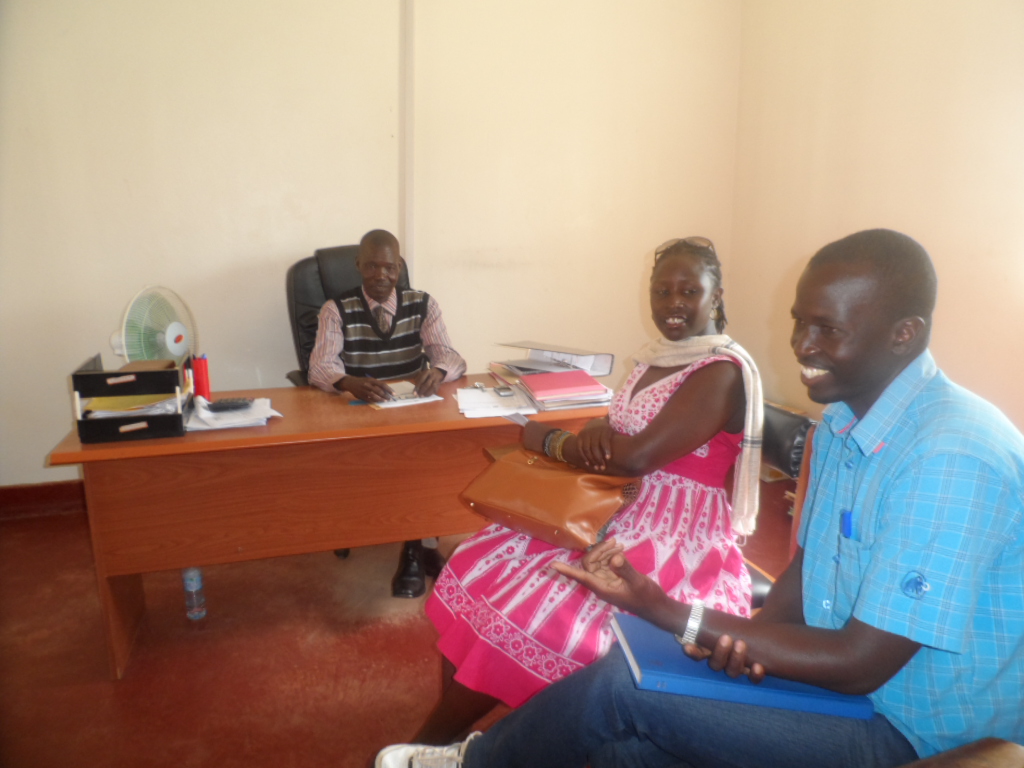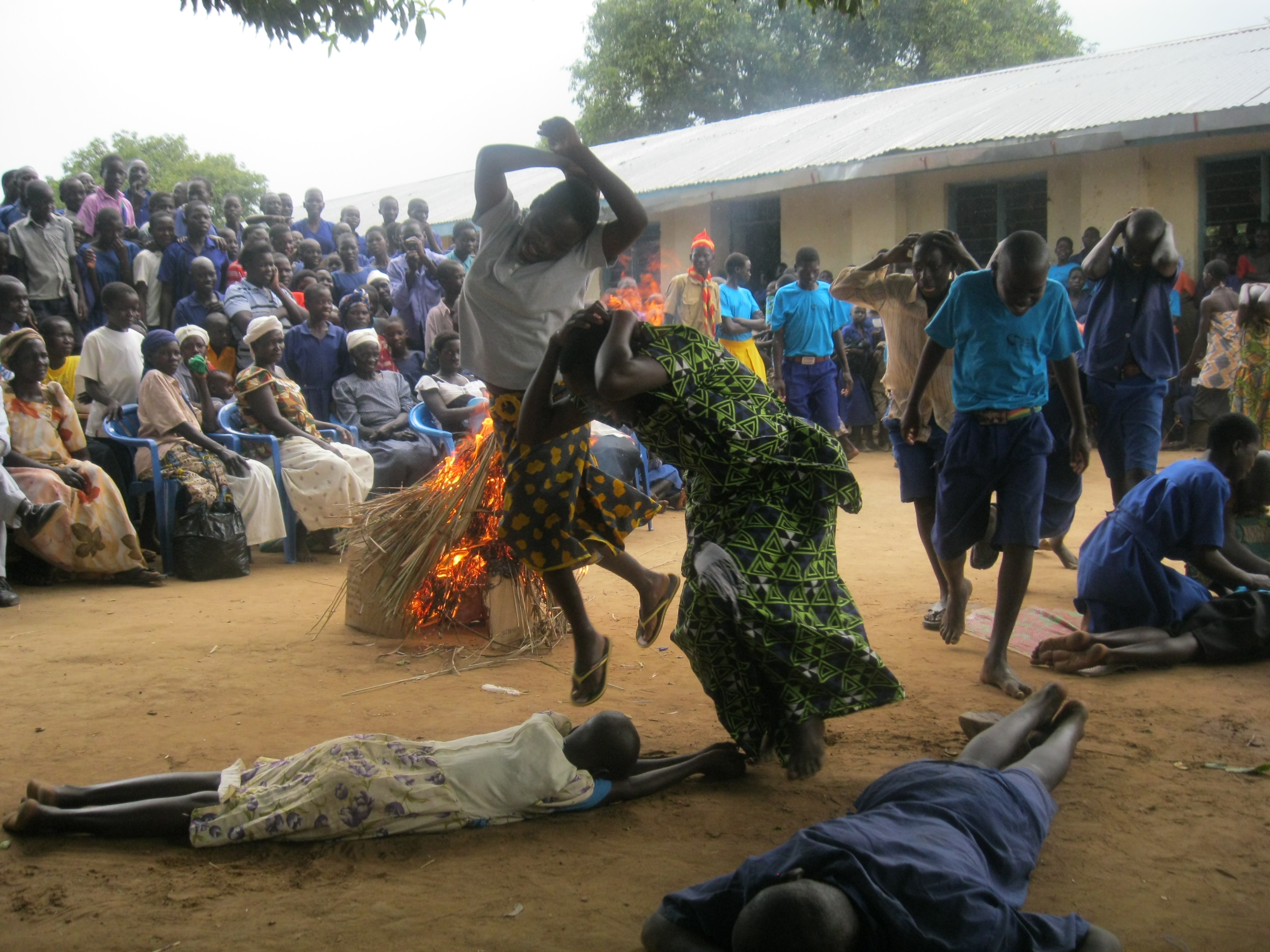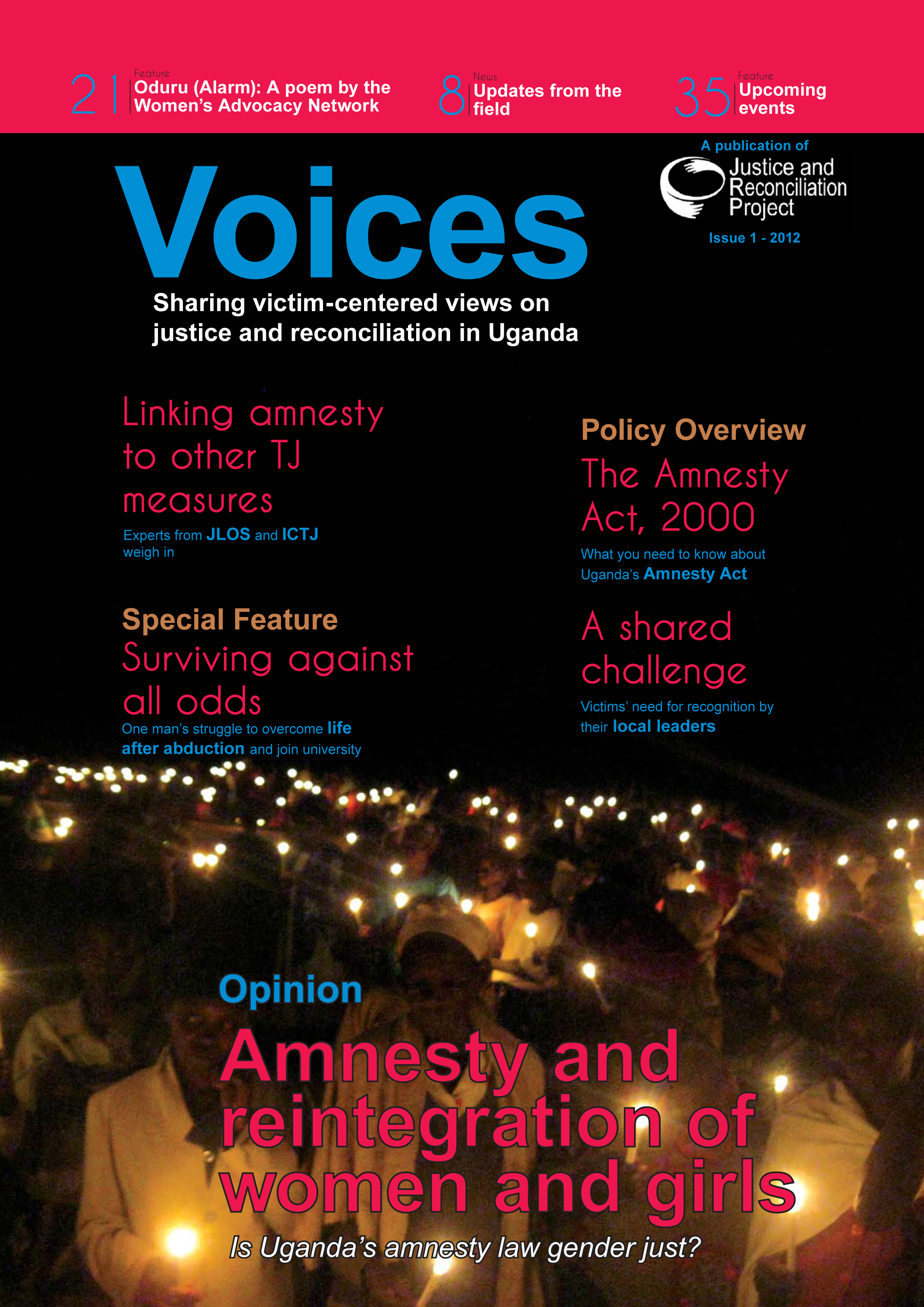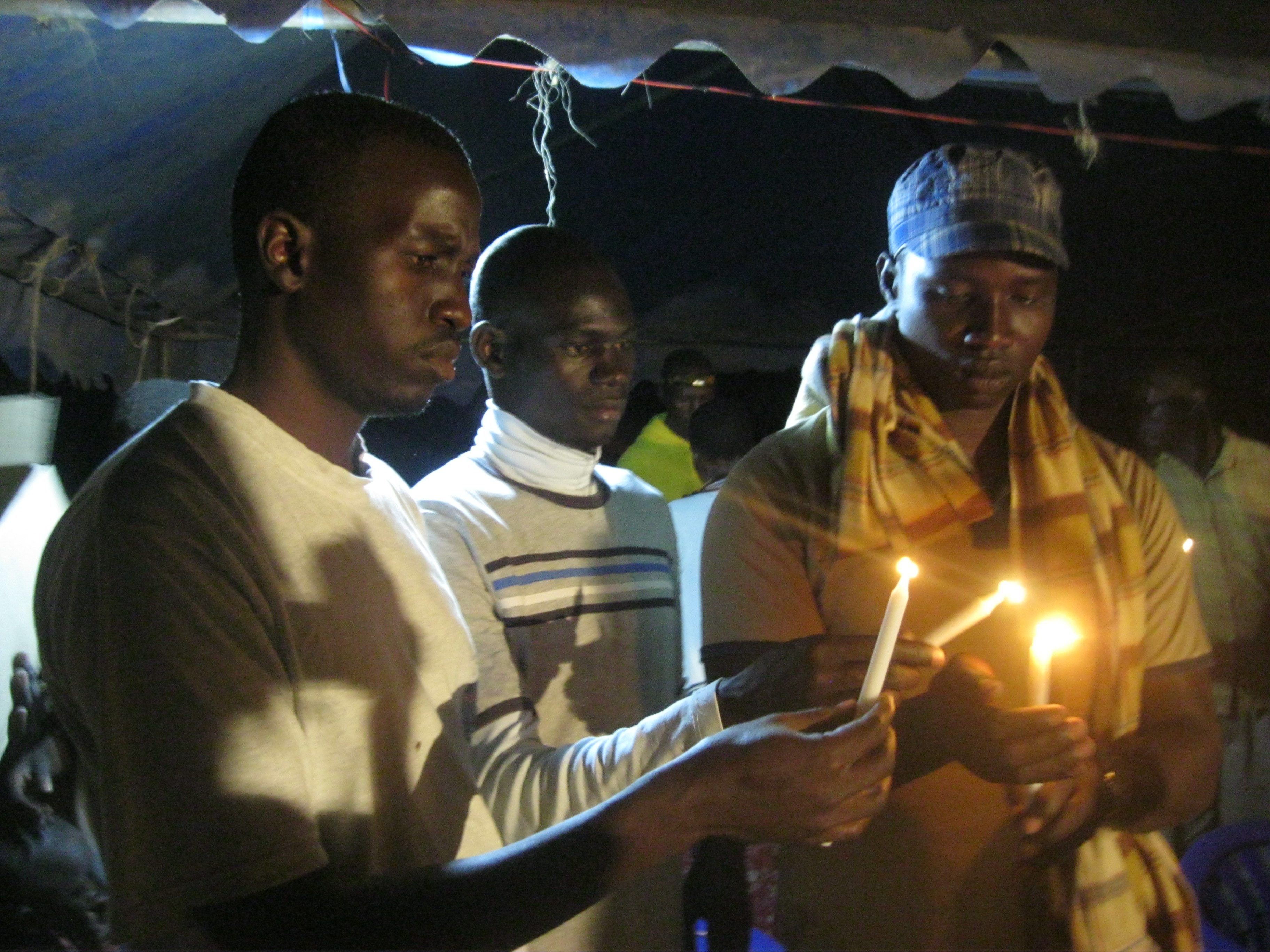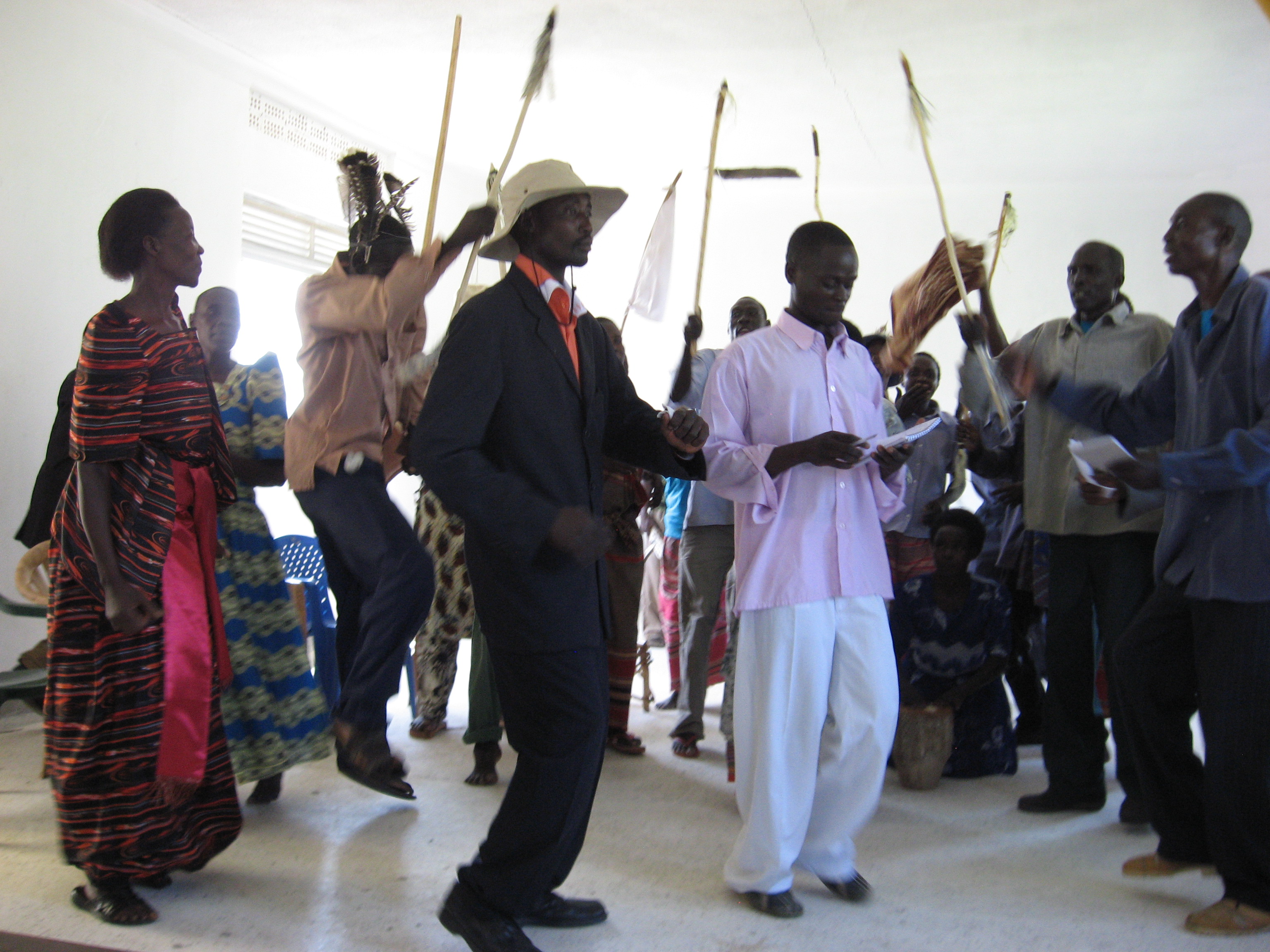http://grassrootsgroup.org/2013/02/let-the-show-begin-training-community-theater-leaders/
By Nicole Söller
Slowly making their way across the crowded room, a dozen of cars try to carefully avoid bumping into one of the others.
Not real cars of course; each car is made up of two people, one person being the driver, the other being the car. With their eyes closed, the cars have to completely trust the drivers who direct them to go straight, left or right. As they switch roles after some time, the facilitators get to put themselves in the position of ‘the others’. As one participant highlighted: “When I was the driver, I was asking myself why the other person (the car) was going so slow. But when we switched positions, I noticed that it was actually a little bit scary.”

‘Beep beep!’ Facilitators ‘driving’ each other through the training hall
After a successful pilot with the Justice and Reconciliation Project (JRP) with two groups in 2012, our community theater partnership is scaling to work with 10 new groups in 2013. Community theater enables groups to explore conflicts, build empathy, and learn about processes of reconciliation.
Just as in the car trust building activity above, the process of story telling, an important part of the community theater project, requires patience, listening skills, and empathy from other group members towards the person who is sharing his or her experiences with the group.
In this process, people share stories of experiences they made during the conflict and of other issues they are currently facing in their communities. They might be stories which are uncomfortable to narrate, which are unheard, or which are simplified and need a better understanding. They can also be stories of remorse, apology and forgiveness, or stories of hope and strength.

Facilitators practice their acting skills in a performance about trauma
For this reason, 22 faciliators from 10 different GRG groups were brought together for a three-day workshop for community theater; each facilitator having been nominated by their group. They were trained in methods of planning and monitoring communty theater sessions, and how to create a performance that gives voice to the stories of the group members and which inspires the audience with visions for the future.
Facilitators learned about story-telling, and how to create a safe environment where group members feel comfortable to also share experiences with one another that are difficult to tell. The facilitators further learned different techniques to facilitate story telling. They drew time lines which chronologically illustrate one person’s experiences within a defined period. This will ultimately enable the different GRG groups to find out about similarities and differences between group members’ stories. Which stories are difficult to listen to? Can participants imagine themselves in the perspective of ‘the other’ (victim, ex-combatant, opposing clan, etc.) and feel empathy?

Facilitators learning how to make a timeline, using one of their own stories of conflict
First attempts of role plays and acting were accompanied by great excitement and participation. I must say, there are some true talents among our facilitators!
Other energizers and trust building activities rounded up this diverse workshop. All facilitators now feel able to build trust, motivate and guide group members through the different theater sessions.

Energizer and teambuilding activities!
After these intense and fun days, I cannot wait for the groups to start with their community theater sessions. It will be especially interesting to see which experiences and conflicts are shared and how this project will contribute to them growing together as a group.

